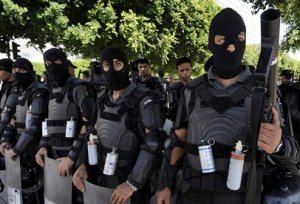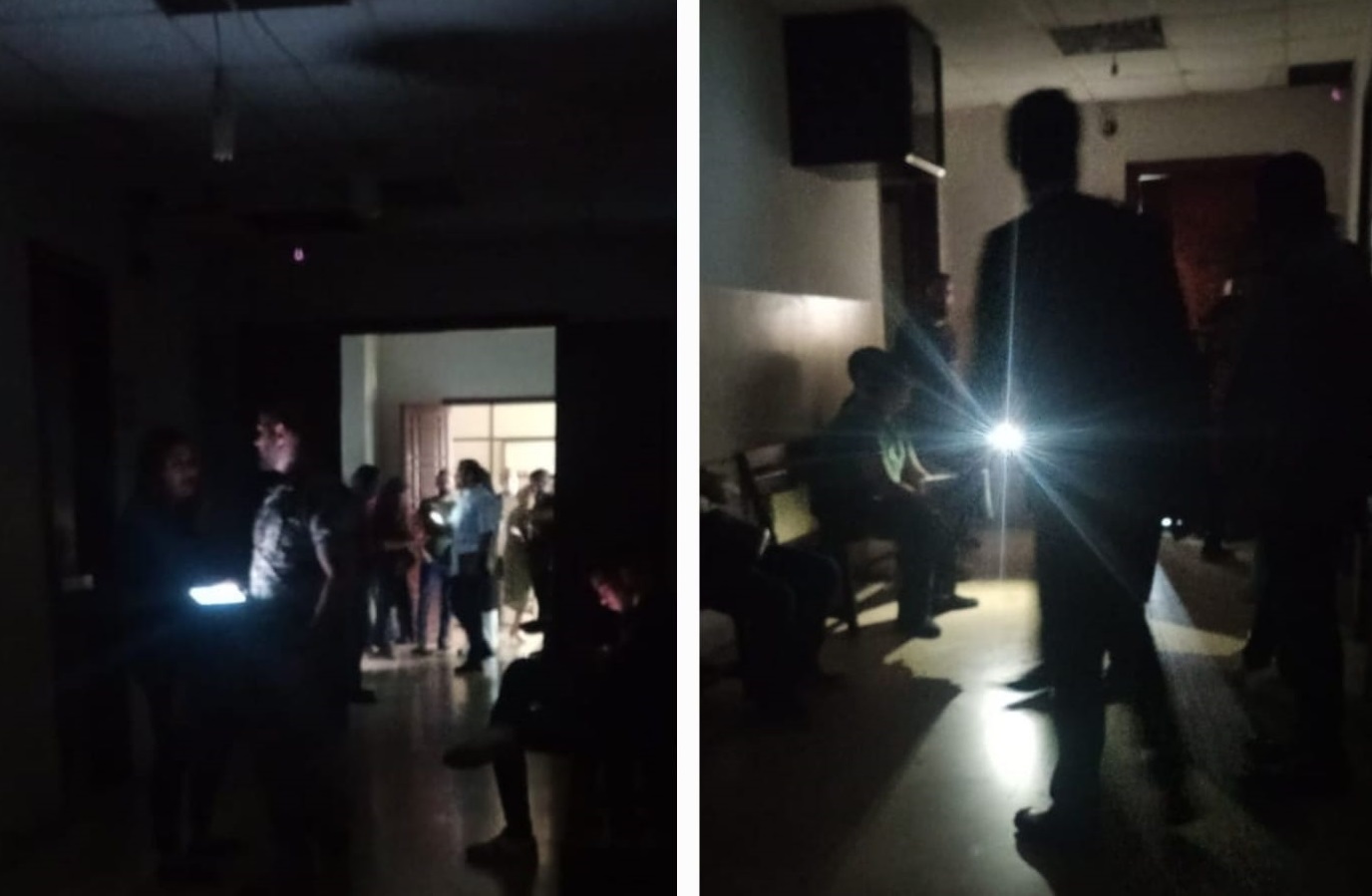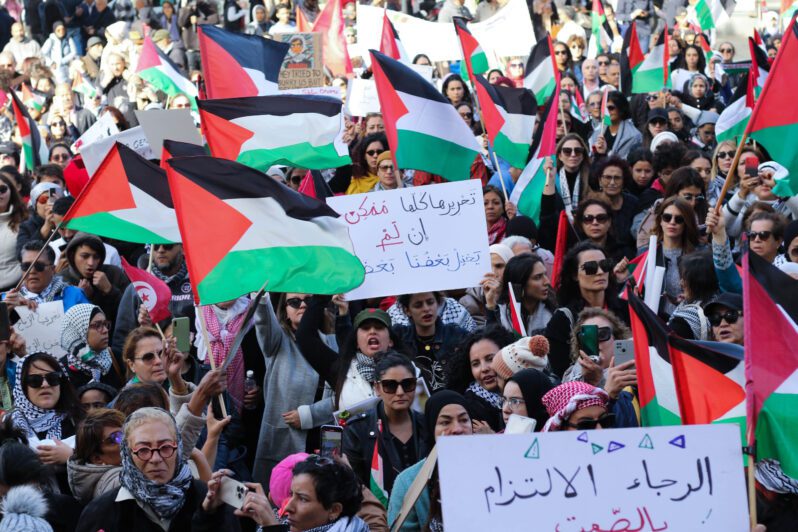A Bill to Deter Attacks on the Armed Forces in Tunisia: Providing Protection or Restricting Rights

On April 13, 2015, the Tunisian government entrusted Parliament with a bill titled Deterring Attacks on the Armed forces. The first article of this bill states that it aims “to protect servicemen of the armed forces from attacks that threaten their lives and safety, in order to safeguard the stability of society as a whole”. The term “armed forces” encompasses, according to the bill, all branches of the internal security forces and their bases, as well as the national military and its bases.
The security forces’ unions have been calling for this law since 2013, considering it a prerequisite for restoring the effectiveness that the security establishment has lacked in the wake of the revolution.[1] In his first statements following his election, the Parliament speaker pledged to meet this demand, and stressed that issuing a counterterrorism law and a law to protect security personnel is among Parliament’s priorities.[2]
The bill was not introduced to address a gap in legislation. As stated in the rationale that the government presented alongside the bill, the existing “Criminal Code criminalizes attacks on the armed forces”. That the legislative system already guarantees protection for security personnel raises a serious question over the extent to which a special law whose stated objective is “protecting security personnel” is actually needed.
The government preemptively answered this question when it introduced the bill, stating that “the protection provided by the Criminal Code is insufficient” and that “keeping recent legislations compliant requires a new law that provides greater protection in line with the United Nation’s Basic Principles on the Use of Force and Firearms by Law Enforcement Officials document”.[3] The aforementioned document stipulates that law enforcement officials play a “vital role” in society, and that “a threat to the life and safety of law enforcement officials must be seen as a threat to the stability of society as a whole”.
In analyzing the bill, The Legal Agenda will examine the extent to which it satisfies its goals, and the extent to which it is truly needed in light of the widespread rejection it has met in the Tunisian human rights arena. In the course of its discussion, this article will investigate whether the bill’s provisions suit its stated goal, or whether they will achieve other unstated goals, namely, the imposition of a distinct authority of the armed forces.
Confronting Attacks on the Armed Forces: The Bill’s Stated Yet Neglected Goal
A bill whose main goal is “preventing attacks on the armed forces” should provide a conception of the penal policy that affords this protection by detailing the specific, relevant crimes, and their punishments. However, a close reading of the bill reveals that those who drafted it neglected this goal. They contented themselves with including a partial list of some of the crimes that affect security personnel, so that they could quickly move on to criminalizing non-specific acts.
The bill addresses a number of crimes, such as those related to threatening armed forces servicemen and attacking their residences or security institutions, without enumerating the specific [legally-defined] crimes that relate to its subject matter, such as premeditated murder, kidnapping, and the various other violent offenses that may be committed against them. On the contrary, the bill includes crimes that are difficult to connect to a desire to protect the armed forces.
Denigrating the Armed Forces
Article 91 of Tunisia’s current Code of Military Justice punishes any civilian or military serviceman “who, in speech, gestures, writing, drawing, hand-produced images, photographs, or films, intentionally and publicly denigrates the flag or the army, or harms the dignity, reputation or morale of the army, or acts to undermine military discipline, obedience and due respect to superiors or criticizes the action of the military hierarchy, or the military officers in a manner that harms their dignity”. The punishment includes up to 3 years of imprisonment. Despite the comprehensiveness of this article, the new bill includes its own article (no. 12) that punishes “whoever denigrates the armed forces with the intention of harming public security” with 2 years of imprisonment and a fine of TDN10,000 [US$5,200].
The military law provision, though lengthy in its exposition, actually defines the actus reus of the crime more precisely than the new bill. The obscure, flexible expressions that the new bill uses to define the actus reus may allow for any opinion critical of the work of the armed forces and security forces to be prosecuted. No less in significance, the bill expanded the scope of the crime of denigrating the military such that it includes security personnel, even though doing so may encroach on freedom of expression.
Disrupting the Services of Security Institutions
Article 11 of the bill decrees “anyone who, with the intention of harming public security, disrupts the normal operation of the offices, establishments, or facilities of the armed forces in any manner” punishable with 3 years of imprisonment, and a fine of TDN15,000 [US$7,800]. In this provision, the bill again uses vague expressions without precisely defining the actus reus of the crime.
Preventing All Public Oversight of the Armed Forces’ Work Under the Guise of Protecting Their Secrecy
That the bill dedicates 8 of its 20 chapters to protecting the secrecy of security work underscores its effort to criminalize any link with the security and military establishment that is deemed harmful to it. These articles appear in the second section of the bill (“Violating National Security Secrets”), the first section having been dedicated to definitions. The first article of the second section defines “national security secrets” as “all data, information, and documents relating to national security”. The bill punishes every armed forces serviceman who leaks such secrets with 10 years of imprisonment, and stipulates the same punishment for any third party that handles them. In doing so, it prevents the competent courts from imposing lighter sentences for these crimes.
Additionally, the bill criminalizes unauthorized photographing and recording in security and military sites and institutions. Furthermore, recordings made with permission must be subjected to censorship before being broadcasted.
In practice, the harshness and broad applicability of the provisions that protect the armed forces’ reputation and the secrecy of anything relating to them, turns any effort to reveal corruption or transgressions within these institutions into a major taboo and subjects those who break the taboo to costly consequences. Thus, it is clear that the bill deviates from its stated goal of deterring attacks on the armed forces, and instead, lays the foundations for the domination of those forces.
The ‘Special Law’ Mechanism: Obscuring Clear Penal Concepts
This bill, alongside the counterterrorism law introduced into Parliament in late March, reflects a legislative trend of using special laws as a principal means of intervening in the Tunisian penal system. The bill’s provisions are an important illustration of the disadvantage of this method, as they do not reflect a clear and comprehensive conception of the principles and tendencies of criminal law, as detailed below.
Criminal laws should scale punishments according to the bearing that the acts they criminalize have on the values or interests that they aim to protect. This bill inflicts a punishment of ten years of imprisonment for threatening a member of the armed forces, in order to compel them to perform or not perform an official duty. On the other hand, the same bill is content with punishing whoever attacks the home or means of transport of a security official because of a matter relating to his official duties, with up to six years of imprisonment. Thus, the punishment for a threat is harsher than the act of carrying it out. This circumvents logic and legal principles.
Furthermore, legislative reform concerning sentencing is supposed to abrogate the previous text, which remains in force only within the confines of the principle of applying the most lenient law to the accused. Yet article 19 of the bill circumvents these principles by stating that the bill’s punishments do not prevent the punishments stipulated by the Criminal Code and other special laws from being applied, if they are harsher. One practical effect of this article (and a possible explanation for its inclusion) is that it allows for the application of capital punishment. The Criminal Code stipulates capital punishment for some crimes such as murder, whereas the harshest penalty found in the bill is life imprisonment. Thus, contrary to its face-value, by referencing other laws in this manner the bill actually reestablishes capital punishment.
Conclusion
The preceding discussion has demonstrated that, in essence, the proposed law does not focus as much on achieving its stated goal of protecting the armed forces from attacks, as it does on achieving the unstated goal of restricting the public’s dealings with this institution. Moreover, the bill does not form a penal policy on the crimes it addresses. These conclusions underscore that the trend of introducing special penal legislations may actually harm penal policy.
Therefore, The Legal Agenda recommends a course correction. Legislating through special laws that may undermine the criminal law system and the principles to which it adheres should be avoided. Efforts should instead be directed towards rewriting the Criminal Code in order to improve its penal provisions and theoretical foundations, and to render it more concordant with modern theories of criminal law and society’s emerging needs.
This article is an edited translation from Arabic.
__________
[1] See: Sirhan al-Shakhawi’s, “The Security Union Confirms its Lodgement and the Constituent Council Refutes: to Where Did the Law for Protecting Security Personnel Disappear?”, Al Chourouk (Tunisian), October 23, 2013.
[2] See: Said Bouhlal’s, “Parliament Speaker: the Counterterrorism Law and Protecting Security Personnel are Priorities”, Assabah (Tunisian), February 19, 2015.
[3] This document was adopted by the Eighth United Nations Congress on the Prevention of Crime and the Treatment of Offenders, Havana, Cuba, August 27 – September 7, 1990.



